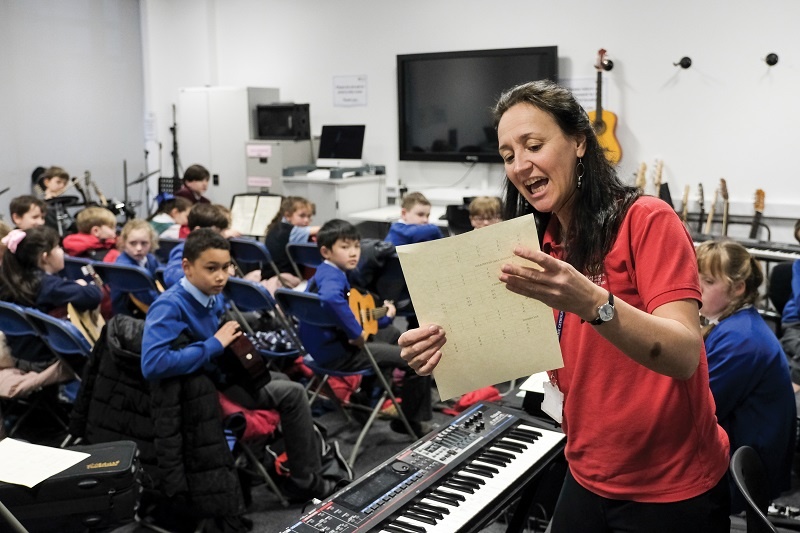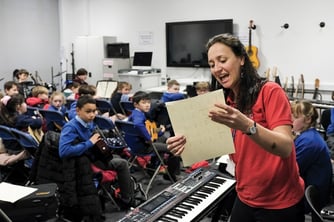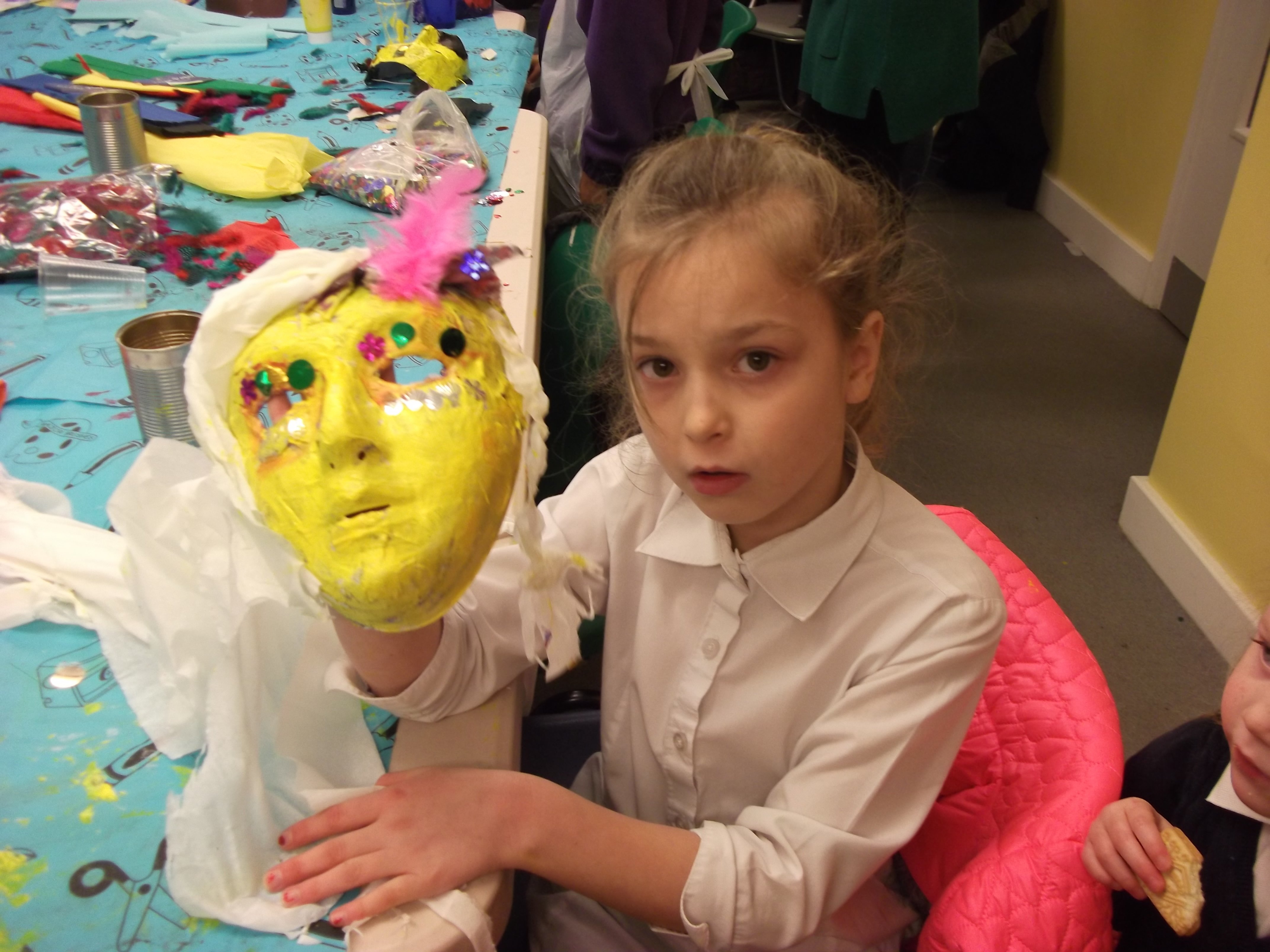
Top five tips for delivering Arts Award Discover to whole classes
BY: Guest Writer
13 Aug 2018
Good Practice Centre (2017-18) Resonate recently delivered Arts Award Discover as a whole class musical instrument programme – Lesley Davies, Resonate Exams Co-ordinator, Strings Teacher and Arts Award Adviser, shares her top five tips for successfully delivering Discover to large groups of children…
 We at Resonate, Liverpool’s Music Hub, are proud to have developed an increasingly popular whole class instrumental programme. We remember our first steps of trialling Arts Award Discover with a small number of ‘First Access’ pupils. It’s great now to witness how the programme has steadily increased over the last few years and in 2017-18 our pupils achieved 1,040 Discover Arts Awards, 72% of the overall total for Liverpool.
We at Resonate, Liverpool’s Music Hub, are proud to have developed an increasingly popular whole class instrumental programme. We remember our first steps of trialling Arts Award Discover with a small number of ‘First Access’ pupils. It’s great now to witness how the programme has steadily increased over the last few years and in 2017-18 our pupils achieved 1,040 Discover Arts Awards, 72% of the overall total for Liverpool.
First Access is one of the government’s key initiatives as part of the National Plan for Music Education. The aim of First Access is to introduce students at Key Stages 1 – 3 to learning an instrument through weekly whole class instrumental lessons. I took over the role of an adviser for Resonate in November last year. I have subsequently spent the last eight months ‘discovering’ what it truly means to be an adviser and that has taught me a thing or two.
Here are my top five tips when delivering Arts Award Discover to whole school classes:
1) Plan far in advance
The initial focus is to make sure that schools are on board. To do this I send out letters with details of Arts Award, costs and an overview of what they can expect to Headteachers months in advance of writing in log books. Essentially, our teachers then talk to the Head to further promote Arts Award. Don’t forget though that Heads are busy people and it can take weeks or even longer to be able to meet with them, therefore planning well in advance is key.
Of course, another element of planning is one that involves delivery. Teachers need to look forward and find out what is happening far ahead in order to plan the lessons. Details of the relevant Arts Award deadlines are sent out shortly after the letters, with a Discover ‘instruction manual’ email.
2) Make it fit with existing practices
First Access instrumental classes meet the criteria for participating in an arts activity (Part A). These pupils have always attended one of the Royal Liverpool Philharmonic Orchestra’s (RLPO) annual schools’ concerts, which links beautifully with ‘finding out about artists and their work’ (Part B). In the weeks prior to these concerts pupils learn about musicians from the orchestra, their instruments and work and further study of their favourite musician is encouraged following the performance. As well as completing the ‘finding out’ section, this makes the concert a richer, more fulfilling experience for pupils as they become genuinely excited to see and hear what they have been studying.
3) Keep it simple
Something to always bear in mind when working with a whole class is that there will be very different levels of ability. At Resonate we found that designing our own pupil log book to suit our specific needs was particularly successful. By completing boxes with simple headings such as ‘I can…’, I know…’, ‘This is how I play (my instrument) …’ with spaces throughout for photos and drawings, pupils shouldn’t fail to meet the criteria. It also keeps guidance simple and clear, minimising misunderstanding.
4) Be flexible
Whether it is deadlines or content covered, there must be room to change things. In whole classes, numerous things such as absences of pupils or staff mean extended deadlines. For example, some schools cannot attend the RLPO concerts and this leads to some young people studying other artists, which then necessitates a change to our log book content. Similarly, a different format may be needed for other young people.
such as absences of pupils or staff mean extended deadlines. For example, some schools cannot attend the RLPO concerts and this leads to some young people studying other artists, which then necessitates a change to our log book content. Similarly, a different format may be needed for other young people.
Recently, we completed some Year 1 Arts Awards, and to simplify things further decided that pupils would interview their music teachers, who also happen to be musicians. They were given multiple choice answers to choose from, to ensure they collected all the necessary information. Our log books were printable Word documents and can therefore be easily amended to suit any young person.
5) Plan enough time for assessment
However long you think it will take you to assess your Arts Award log books - multiply it several times over! Completed log books keep pouring in and this is one thing I have discovered as a very lengthy process. Make sure to set aside blocks of time in advance purely for assessment.
It is challenging to be an adviser for such large numbers, but also incredibly rewarding as I get to see the fabulous products of everybody’s hard work. That is worth discovering!
Related posts

BY: Guest Writer
BY: Guest Writer


.jpg)
Comments & Replies